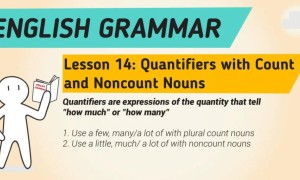首先,我们先来区分两者正确的使用时机:
Sorry
使用时机:
做错事后感到愧疚、后悔,因而表示歉意 (apologize)
接着要说难以启齿的事或不好的消息时 (something unpleasant to say)
造成对方不便,因而感到不好意思
表达遗憾的感觉、慰问(condolences)
委婉的拒绝
Example :
I’m sorry for making so much trouble.
对不起,我造成了这么多困扰。 (犯错)
I am sorry, all flights are delayed.

不好意思,所有的班机都延误了。 (不好的消息)
Sorry, could you please repeat that again?
抱歉,可以请你再说一次吗? (造成对方的不便)
I am really sorry to hear about your loss.
听到你损失,我感到很遗憾。 (慰问)
I am sorry, I can’t come today.
我很抱歉今天不能去。 (委婉的拒绝)
Excuse Me
使用时机:
吸引别人注意 (get someone’s attention)的礼貌说法
请对方借过;让路 (to get pass),像中文的「不好意思,请借过一下」
使用于失礼的行为之前,常用于中途离席或提前离开
Excuse me, could you please tell me how to go to the bank?
不好意思,可以请你告诉我如何去银行吗? (吸引别人注意)
Excuse me, could you please move a little bit?
不好意思,可以请你移动一下吗? (借过;让路)
Excuse me, I’ll be right back.
不好意思,我马上就回来 (中途离席)
Pardon
常见的说法包括:Pardon? / Pardon me? / I beg your pardon?
使用时机:
做出令人不悦的行为或错事,而请求原谅(forgive)
造成对方的不便,因而请求原谅
赦免
提醒: pardon是较为正式(formal)的说法
I beg your pardon. I didn’t notice your bag.
请原谅我,我没注意到你的包包。 (令人不悦的行为)
I beg your pardon. Could you please repeat that again?
请原谅我,可以请你再说一次吗? (造成对方的不便)
Large numbers of political prisoners have been pardoned and released by the new president.
新总统赦免并释放了一大批政治犯。 (赦免)
[大比较] “Sorry” vs. “Excuse me”
Sorry通常在「犯错」的行为后使用,表示歉意;事后要求原谅:
— “Sorry” is asking for forgiveness.
— You have done something wrong, which you regret doing.
此时”sorry”就比 “excuse me”来的恰当
Excuse me通常在做「令人不悦、造成不便」的事情之前使用,有「事先告知、请求允许」的意味:
— “Excuse me” is asking for permission.
— You say, “Excuse me” before doing something that might inconvenience someone.
常见的是在拥挤的人群通过的情境,当你想要表达借过时, “excuse me”就比 “sorry”来的恰当,因为此时你并犯错,而是先前告知要通过,请求允许而已。







